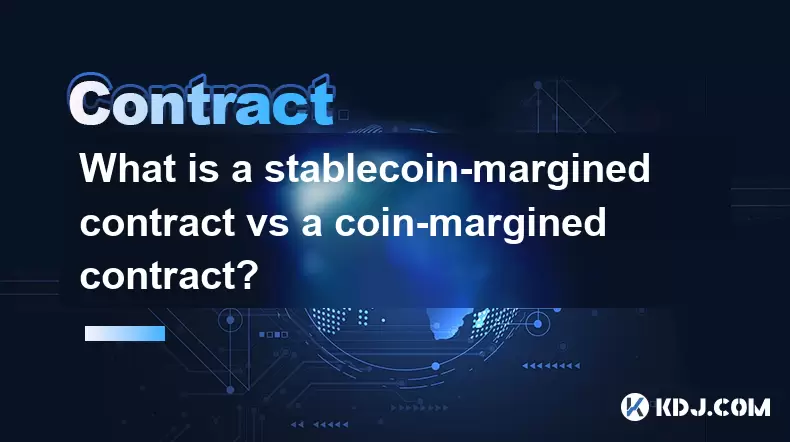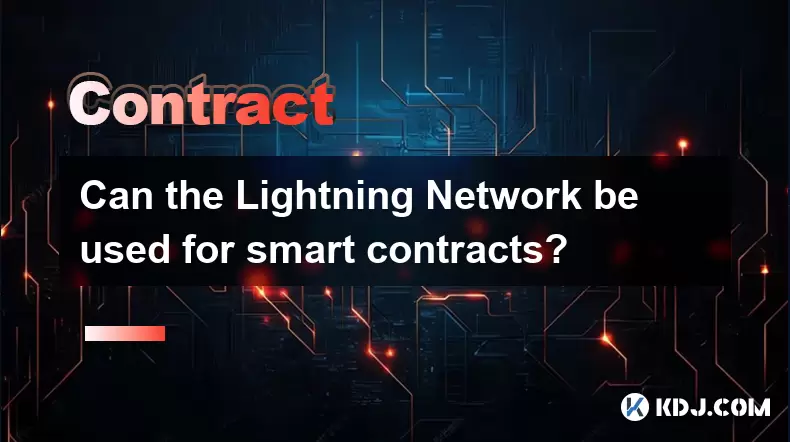-
 Bitcoin
Bitcoin $118,209.3536
1.16% -
 Ethereum
Ethereum $3,151.7546
5.98% -
 XRP
XRP $2.9277
2.35% -
 Tether USDt
Tether USDt $1.0000
0.00% -
 BNB
BNB $689.7099
1.26% -
 Solana
Solana $163.4270
1.91% -
 USDC
USDC $1.0000
0.02% -
 Dogecoin
Dogecoin $0.1983
3.74% -
 TRON
TRON $0.3008
0.51% -
 Cardano
Cardano $0.7435
2.86% -
 Hyperliquid
Hyperliquid $47.6547
-0.48% -
 Stellar
Stellar $0.4625
2.79% -
 Sui
Sui $3.9921
2.71% -
 Chainlink
Chainlink $16.0608
4.23% -
 Hedera
Hedera $0.2348
1.56% -
 Bitcoin Cash
Bitcoin Cash $496.6985
1.25% -
 Avalanche
Avalanche $21.9038
5.41% -
 UNUS SED LEO
UNUS SED LEO $8.8356
-1.88% -
 Shiba Inu
Shiba Inu $0.0...01364
5.31% -
 Toncoin
Toncoin $3.1102
4.35% -
 Litecoin
Litecoin $95.9756
3.59% -
 Polkadot
Polkadot $4.0925
5.78% -
 Monero
Monero $333.7622
-1.44% -
 Uniswap
Uniswap $9.1968
2.25% -
 Bitget Token
Bitget Token $4.6378
6.23% -
 Pepe
Pepe $0.0...01282
6.77% -
 Dai
Dai $1.0002
0.03% -
 Ethena USDe
Ethena USDe $1.0005
0.00% -
 Aave
Aave $329.9143
4.49% -
 Bittensor
Bittensor $441.4995
6.89%
Are there any insurance products for smart contract failure?
Smart contract insurance protects against financial losses from coding errors or attacks, offering coverage through decentralized platforms like Nexus Mutual or centralized providers.
Jul 11, 2025 at 10:01 am

What is Smart Contract Failure?
Smart contract failure refers to a situation where a self-executing contract on the blockchain does not perform as intended due to coding errors, vulnerabilities, or malicious attacks. These failures can lead to significant financial losses for users and developers alike. Since smart contracts are immutable once deployed, any flaw in their code cannot be easily corrected, making them particularly risky.
The decentralized nature of blockchain means that traditional legal recourse may not apply, prompting the need for alternative risk mitigation strategies such as insurance.
How Does Insurance Work in the Cryptocurrency Space?
In the cryptocurrency ecosystem, insurance products are designed to protect users from digital asset loss, including theft, hacking, and smart contract failures. These policies typically operate through a combination of audits, risk assessment, and compensation mechanisms. Coverage can vary widely depending on the provider and the terms of the policy.
Some platforms offer custodial insurance for exchanges and wallets, while others focus specifically on DeFi-related risks. The emergence of decentralized insurance protocols has also introduced peer-to-peer coverage models, allowing users to pool funds and insure each other against potential losses.
Types of Insurance Products Covering Smart Contract Failures
Several types of insurance products have emerged to address the unique risks associated with smart contract execution:
- Decentralized Insurance Protocols: Platforms like Nexus Mutual and InsurAce allow users to purchase cover against smart contract failures. These services rely on community governance and pooled capital to provide payouts when incidents occur.
- Centralized Insurance Providers: Traditional insurance firms and crypto-native companies such as Lloyd’s of London and Blockstream have begun offering policies covering smart contract exploits. These often require detailed technical audits before coverage is approved.
- Project-Level Coverage: Some DeFi projects purchase insurance for their own protocols to reassure users. This type of insurance is usually transparent and accessible to all participants of the protocol.
Each model comes with its own set of benefits and limitations, ranging from claim verification processes to premium structures.
How to Purchase Smart Contract Insurance
Purchasing insurance for smart contract failures involves several key steps:
- Identify a Suitable Provider: Research available insurance platforms and compare their coverage options, reputation, and supported blockchains. Nexus Mutual and InsurAce are two of the most recognized names in this space.
- Select the Protocol or Contract: Most platforms allow you to choose which specific smart contract or DeFi protocol you want to insure. Ensure that the contract address is correct and verified.
- Specify Coverage Amount and Duration: You will need to determine how much coverage you need and for how long. Premiums are typically calculated based on the assessed risk of the contract.
- Pay Premium in Cryptocurrency: Most insurance purchases are made using stablecoins or native tokens of the platform. Be sure to understand any gas fees or additional costs involved.
- Receive Coverage Certificate or NFT: Upon successful payment, you’ll receive proof of coverage, often in the form of an NFT or a tokenized certificate. Keep this secure, as it may be needed during the claims process.
Understanding these steps ensures that users can effectively protect themselves against unexpected failures.
Filing a Claim for Smart Contract Failure
When a smart contract fails, filing a claim involves a structured process:
- Document the Incident: Gather evidence such as transaction hashes, error logs, and screenshots. Clear documentation increases the likelihood of a successful claim.
- Submit Claim via Platform Interface: Most decentralized insurance platforms have a dedicated portal for submitting claims. Follow the instructions provided carefully.
- Wait for Verification: Claims are reviewed by the platform's governance body or underwriting team. This may involve third-party audits or expert analysis.
- Receive Compensation if Approved: If your claim is accepted, compensation will be sent to your wallet in the specified cryptocurrency. Payout times vary depending on the insurer.
Transparency and timely communication are crucial during this phase to ensure user trust and satisfaction.
Challenges and Limitations of Smart Contract Insurance
Despite the growing availability of smart contract insurance, several challenges persist:
- Limited Scope of Coverage: Not all events are insurable. Many policies exclude bugs discovered after deployment unless explicitly covered.
- High Premiums for High-Risk Protocols: Projects with complex or unaudited code may face prohibitively expensive premiums. This limits accessibility for smaller users.
- Slow Claims Process: Due to the need for thorough verification, claim resolution can take weeks or even months. Users should factor this into their risk management strategy.
- Regulatory Uncertainty: The evolving regulatory landscape affects how insurance products can be offered and enforced. This creates ambiguity for both providers and users.
These limitations highlight the importance of combining insurance with proactive security practices.
Frequently Asked Questions (FAQ)
Q: Can I get insurance for any smart contract?
A: No, not all smart contracts are eligible for insurance. Most platforms only cover well-known DeFi protocols or contracts that have undergone rigorous audits.
Q: Is insurance enough to fully mitigate smart contract risk?
A: While insurance provides a safety net, it should not be the only risk management tool. Conducting independent research, using audited contracts, and diversifying investments are equally important.
Q: Do centralized exchanges offer smart contract insurance?
A: Some centralized exchanges offer limited protection for assets stored on their platforms, but this typically doesn’t extend to third-party smart contracts used in DeFi.
Q: Are insurance premiums refundable if no incident occurs?
A: Generally, premiums are non-refundable. They function similarly to traditional insurance — payment secures coverage regardless of whether a claim is made.
Disclaimer:info@kdj.com
The information provided is not trading advice. kdj.com does not assume any responsibility for any investments made based on the information provided in this article. Cryptocurrencies are highly volatile and it is highly recommended that you invest with caution after thorough research!
If you believe that the content used on this website infringes your copyright, please contact us immediately (info@kdj.com) and we will delete it promptly.
- Animal Memecoins Roar Back: HEGE, BONK, and the Solana Pack Lead the Charge
- 2025-07-16 20:50:13
- Pumpfun's PUMP Token: SOL Transfers, Buybacks, and the Wild West of Meme Coins
- 2025-07-16 20:30:13
- Trump, HTX, and USDT: Riding the Crypto Wave in 2025
- 2025-07-16 20:50:13
- SPX6900, Meme Coins, and the Quest for 1000x Gains: A New Yorker's Take
- 2025-07-16 20:30:13
- Eclipse Airdrop and Token Supply: Navigating the Crypto Landscape
- 2025-07-16 18:50:13
- Solana Price, Zebec Network, and Remittix: Decoding the Crypto Signals
- 2025-07-16 18:30:13
Related knowledge

What is a stablecoin-margined contract vs a coin-margined contract?
Jul 15,2025 at 06:36pm
Understanding the Difference Between Stablecoin-Margined Contracts and Coin-Margined ContractsIn the world of cryptocurrency derivatives, margin plays...

How to backtest a Bitcoin futures trading strategy?
Jul 15,2025 at 11:35am
Understanding Bitcoin Futures TradingBitcoin futures trading involves contracts to buy or sell Bitcoin at a predetermined price and date in the future...

Psychology of trading Bitcoin contracts
Jul 13,2025 at 02:50am
Understanding the Emotional Rollercoaster of Bitcoin Futures TradingBitcoin contract trading, especially in the form of futures, introduces a high lev...

Can the Lightning Network be used for smart contracts?
Jul 14,2025 at 11:28pm
Understanding the Lightning Network's Core FunctionalityThe Lightning Network is a second-layer solution built on top of blockchain protocols like Bit...

How does macroeconomic news affect Bitcoin futures prices?
Jul 15,2025 at 04:56pm
Understanding the Relationship Between Macroeconomic News and Bitcoin FuturesBitcoin futures are derivative contracts that allow traders to speculate ...

Best time of day to trade Bitcoin contracts?
Jul 13,2025 at 05:29am
Understanding Bitcoin Contracts and Their VolatilityBitcoin contracts, particularly futures contracts, are derivative instruments that allow traders t...

What is a stablecoin-margined contract vs a coin-margined contract?
Jul 15,2025 at 06:36pm
Understanding the Difference Between Stablecoin-Margined Contracts and Coin-Margined ContractsIn the world of cryptocurrency derivatives, margin plays...

How to backtest a Bitcoin futures trading strategy?
Jul 15,2025 at 11:35am
Understanding Bitcoin Futures TradingBitcoin futures trading involves contracts to buy or sell Bitcoin at a predetermined price and date in the future...

Psychology of trading Bitcoin contracts
Jul 13,2025 at 02:50am
Understanding the Emotional Rollercoaster of Bitcoin Futures TradingBitcoin contract trading, especially in the form of futures, introduces a high lev...

Can the Lightning Network be used for smart contracts?
Jul 14,2025 at 11:28pm
Understanding the Lightning Network's Core FunctionalityThe Lightning Network is a second-layer solution built on top of blockchain protocols like Bit...

How does macroeconomic news affect Bitcoin futures prices?
Jul 15,2025 at 04:56pm
Understanding the Relationship Between Macroeconomic News and Bitcoin FuturesBitcoin futures are derivative contracts that allow traders to speculate ...

Best time of day to trade Bitcoin contracts?
Jul 13,2025 at 05:29am
Understanding Bitcoin Contracts and Their VolatilityBitcoin contracts, particularly futures contracts, are derivative instruments that allow traders t...
See all articles

























































































